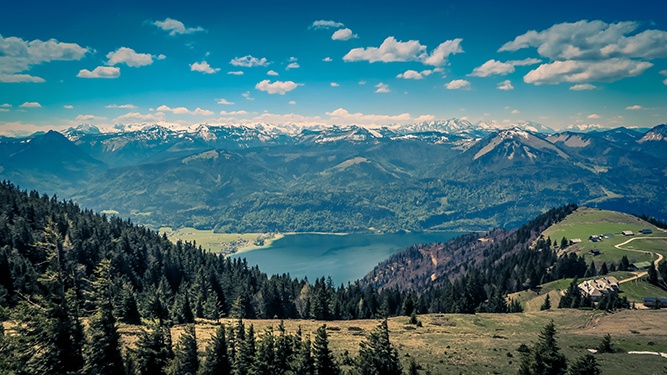Thinking of moving to Austria from the UK?
Austria is constantly ranked as a country with one of the best qualities of life in the world, and it is a long standing favourite with tourists and expats.
Located right at the heart of continental Europe, Austria is a dynamic and multicultural country that boasts grand cosmopolitan cities with an incredibly rich culture — particularly in regard to the arts, and exquisite mountainside villages and towns bursting with old world charm.
In the countryside lush mountain valleys roll down to sparkling lakes and rivers, and in winter serene, icy glaciers decorate snow dusted mountain peaks.
Austria is all about passion for life, nature and the outdoors, great cuisine, and taking the time to relax and enjoy the view.
If you’re thinking about joining the considerable number of UK expats living and working in awesome Austria, we’ve got the lowdown on everything you need to know about making your move.
Read on to find out more…
Contents
Austria Visa Requirements for Brits
With Brexit threatening chaos it’s not clear what the fallout will be for Brits moving to Austria.
The following visa information is based on current legislation for EU nationals…
Visiting
British Citizen passport holders currently don’t need a visa to enter Austria for stays of up to 90 days.
If the UK leaves the EU without a deal, Brits will most likely be required to apply for a Schengen visa, and passports should be up to date and valid for the duration of your stay.
Working
Just as Brits are currently permitted to visit Austria as a tourist for up to 90 days without a visa, they can also legally work there for 90 days without a work permit.
Any longer than 90 days and it is necessary to apply for residency to continue to work. This is a relatively simple process as long as you can prove that you are financially independent and able to support yourself for the duration of your stay.
All new residents must register with their municipal administration or Magistrate within three days, and the process requires a completed residence registration form with your landlord’s signature if you live in a rented flat, plus your passport or birth certificate.
Permanent Residency
EU citizens automatically acquire the right to permanent residency in Austria after having lived and worked there continuously for more than 5 years.
Should the UK become a third party country no longer part of the EU, the process will become more convoluted, with greater restrictions.
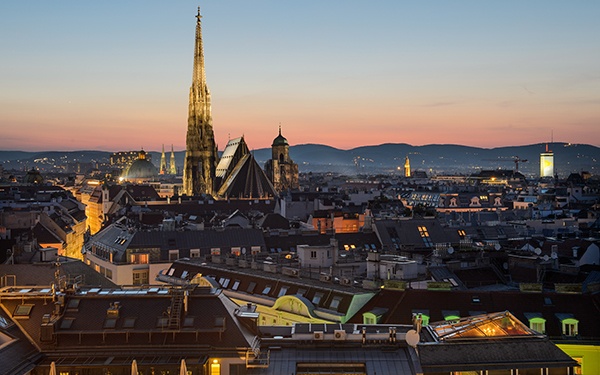
Way of Life in Austria
Lifestyle
If you’re thinking of moving to Austria — be prepared to party!
Austrians are a friendly and fun loving lot, and enjoy plenty social and family gatherings — usually with dancing and alcohol in abundance.
Life in Austria is very relaxed and perfect for families and those who like a laid back way of life.
Austria is a stunningly beautiful country with diverse natural landscapes, and outdoor activities play a big part in the Austrian lifestyle all year round — from skiing, snowboarding and other snow based sports in winter, to things such as hiking, fishing, biking, rock climbing, swimming and watersports in summer.
This probably plays a large part as to why Austria is one of the healthiest nations in Europe. Austrian people are also fiercely proud of their cultural heritage, and arts and music are ever present.
Despite the laid back attitude of the Austrian people, they do appreciate a well organised life.
Working hours are set, holiday allowances are generous, and there are numerous public holidays throughout the year, allowing for a good work / life balance.
People are always punctual and polite, and public transport runs like clockwork. Streets are kept squeakily clean, and crime rates are negligible.
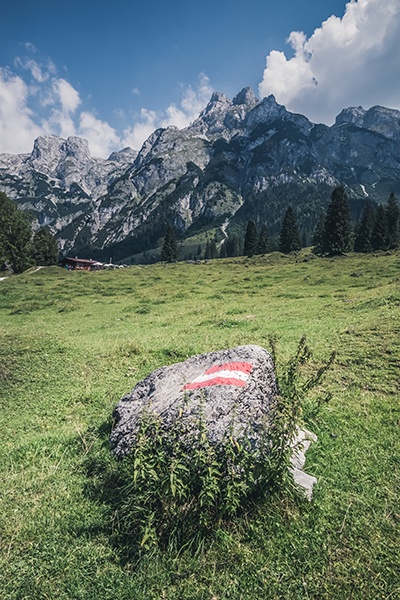
Getting Around
Rail travel in Austria is a joy. Trains are of a high standard, services are fast, and routes are often superbly scenic.
Aside from areas well off the beaten track, travelling by train will get you to easily most destinations in Austria, and many other transport services including buses and boats most often have arrival and departure times that coincide with train schedules, which is very convenient for ongoing travel. Train travel in Austria is also good value for money — even more so if you invest in a rail pass.
The main bus network in Austria is called Postbus, and is ideal for reaching more out of the way areas and for travelling up into the mountains.
Bus services are punctual and reliable, and schedules can be conveniently viewed online on the Postbus website. It is worth noting that in many more remote areas bus services are often sparse on weekends, and on Sundays may not even operate at all. In general travelling by bus in Austria is a pleasant experience but is slower than travelling by train, and may sometimes work out to be slightly more expensive.
In the cities, tram and bus services are the best way to get around. They are also a very affordable and safe way to get from A to B.
Taxis are another option. They are usually metered and can be called for in advance or flagged down. Expect to pay the driver a 10% tip.
Driving in Austria
If you want to make the most of Austria’s stunning scenery, there’s no better way than by car or motorbike.
In summer even the mountain roads are in good condition, but be aware that winter in Austria brings plenty of snow, and many mountain roads are closed.
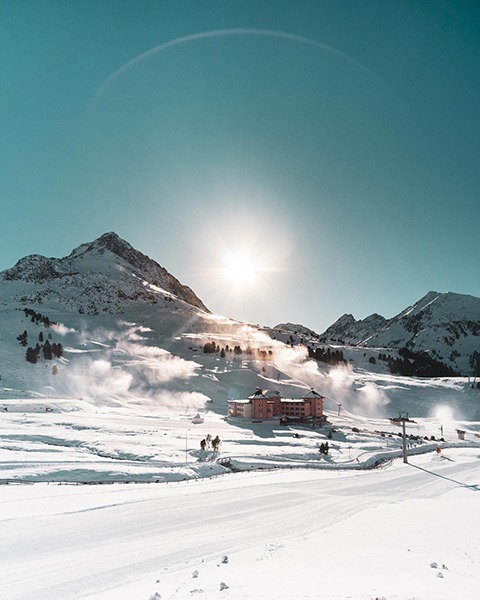
From November to mid-April, winter tires or snow chains are mandatory.
Main roads though remain open, including of course Austria’s well maintained autobahn, for which you will require Toll stickers called Vignettes which can be bought at service stations and post offices for durations from 10 days up to two months.
If renting a vehicle you are required to have held a drivers licence for a minimum period of one year, and you must also present your passport when signing the rental contract. Beware of hidden additional costs such as insurance and rental taxes which may not be included in your price quote.
If you are in the country for more than six months you will need to get an Austrian license.
Driving in Austria is relatively safe, but don’t be surprised at the hair raising speeds at which many people drive on the motorways, and bear in mind that there are often large ongoing roadworks which can slow things down.
Weather in Austria
Austria benefits from being in a temperate weather zone, with southern and western parts of the country boasting long, warm summers and mild winters.
In northern and eastern areas, summers are slightly hotter and winters colder. In mountainous Alpine areas summers are relatively short and winters are long with considerable snowfall.
At other times of the year rain is fairly frequent. In general, winter and snowy conditions extend from December through to March and temperatures average out at around 0°C with extremes of -20°C in the mountains.
On average, summer temperatures hover at around a pleasant 20°C with highs well up into the mid 30°Cs. April and November are the wettest months, with the months of June to August bringing sudden showers and occasional heavy thunderstorms.
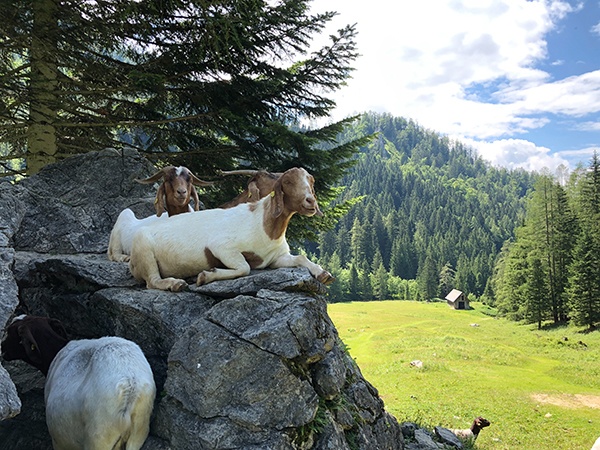
Cost of Living in Austria
Lifestyle
In general the cost of living in Austria is higher than some other European countries, but still remains cheaper than the UK.
Living costs are dependent on location. City life is most expensive with Vienna being by far Austria’s most costly city.
Living costs become cheaper away from big cities, with rural areas being the cheapest.
Groceries in Austria can be expensive — particularly fruit and vegetables which aren’t in season — so in order to keep costs down it is best to shop at budget supermarkets. That said, groceries are no more expensive than in the UK, and beer is cheap.
When eating out, food and drink is available in all price categories, with the average price for a 3 course meal for one person in a reasonable restaurant being around 25 euros.
Public transport in Austria is efficient and very affordable. Owning a car on the other hand can be very expensive.
Monthly outgoings such as electricity, water, and internet are priced similarly to the UK.
Here’s a great video on the cost of living in Austria:
Rent
Rental prices in Austria vary widely, with inner city properties commanding the highest prices. A studio apartment in a nice part of town can cost as much as €900 per month, and €650 in a less desirable area.
In the suburbs prices start to drop, and rents in rural areas can be very affordable.
Healthcare
As you would expect from such a well run country, Austria’s health service is first rate.
Basic healthcare is free to European expats living in Austria, and those working there pay into the Austrian public health insurance system.
While doctor and dentist visits, basic hospital treatment and most medications are free under the public healthcare scheme, specialist medical care is not, and expats are advised to take out private health insurance to cover any additional costs.
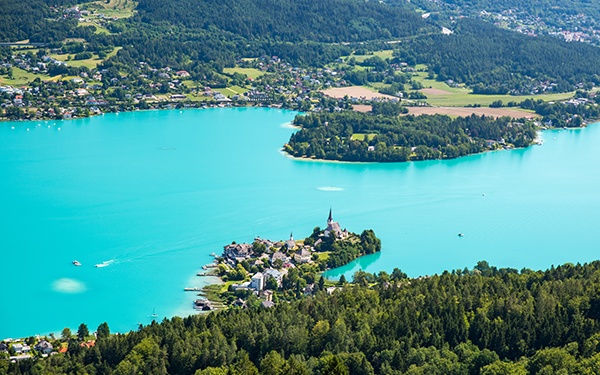
Schooling
Austrian public schools are free and offer a good standard of education, however lessons are taught in German, which prompts many expats to educate their children at international schools which follow a familiar curriculum and teach lessons in English.
Most international schools are based in Vienna and tuition fees are expensive, but facilities are top notch and the standard of teaching is excellent.
Alternatively, Austria has a number of bilingual schools which are free and where lessons are taught in both German and English, although they do follow an Austrian curriculum.
Popular Areas for Brits
Vienna
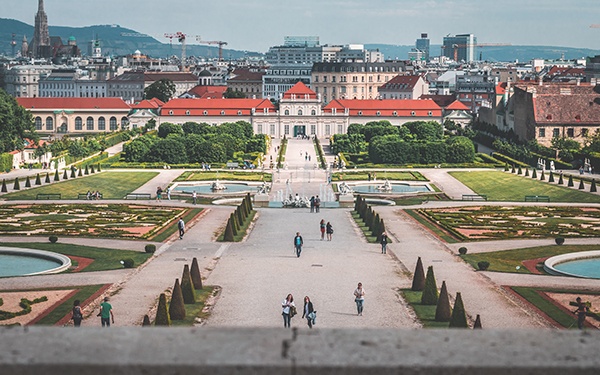
One of Europe’s grandest cities, Vienna is a masterpiece of Baroque magnificence.
The vestiges of the Habsburg monarchy include stunning imperial palaces, incredible museums — particularly those such as the Kunsthistorisches Museum which houses a wealth of wonderful works by old masters. Music and art are the soul of the city, with exceptional opera houses and other music venues.
But Vienna is not just about all things classic. It’s a vibrant city with an edgy cosmopolitan vibe, packed with hip bars, innovative restaurants, bustling markets, and a quirky modern art scene.
Salzburg
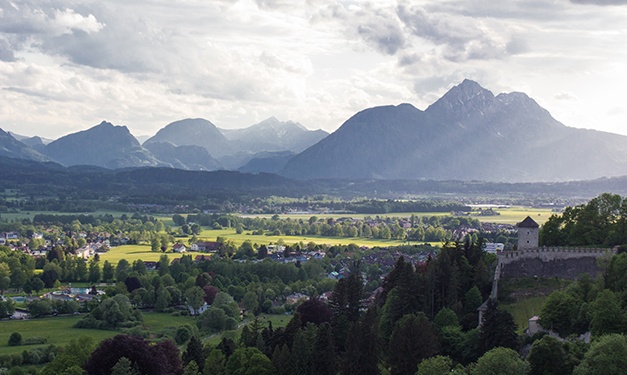
Few European cities have a backdrop as impressive as Salzberg, surrounded by mountains and presided over by an extraordinary cliff top fortress and fed by the waters of the serene Salzach river.
Once the home of Mozart, Salzburg is a city of music and culture, with numerous concert halls and a thriving arts scene.
You will also find Austria’s largest beer hall here, with enough room for more than 1100 people — and that’s excluding the beer garden.
Graz
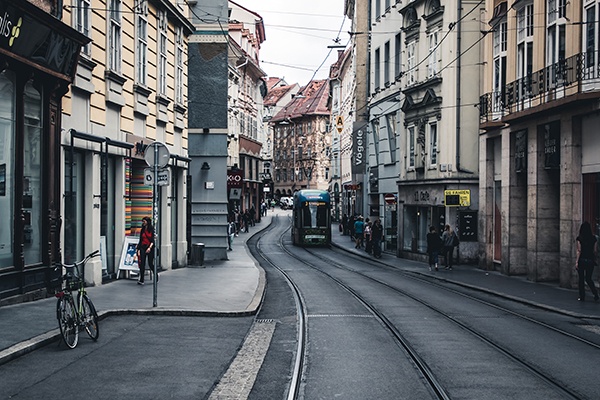
The green and leafy city of Graz rises up either side of the wide, gently winding river Mur.
A UNESCO World Heritage Site, Graz is awash with Renaissance, Gothic and Baroque architecture, with hilltop palaces, fabulous museums, and a historic Old Town at its heart.
It’s also a lively modern city, with a burgeoning culinary scene, an animated arts scene, and energetic nightlife.
Innsbruck
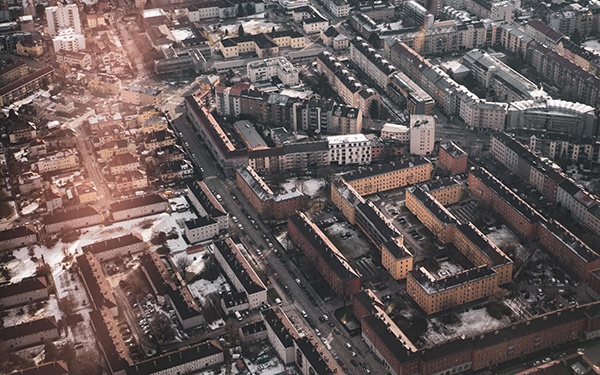
Austria is blessed with spectacular scenery, and the Tyrolean capital Innsbruck is no exception.
Surrounded by the rugged peaks of the Austrian Alps and rich Alpine pastures, Innsbruck is a breath taking city.
This cultural city has a well preserved medieval Old Town, an imposing Baroque palace and a magnificent cathedral, plus a whole host of activities both summer and winter, as hiking turns to skiing with the change of seasons.
Feldkirch
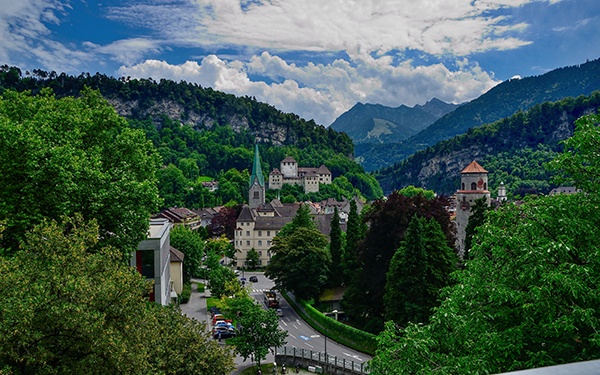
The pretty town of Feldkirch has abundant charm, from its narrow cobbled streets to the rows of sugary coloured houses.
Nestling at the base of lush forested hills and surrounded by nature, Feldkirch is an ideal choice for lovers of the great outdoors, with plenty of picturesque hiking routes to enjoy.
Summertime brings a lively calendar of concerts, festivals and other open air events.
Hallstatt
One of the world’s most beautiful towns, Hallstatt is a feast for the eyes.
Poised on the edge of a vast, tranquil lake encircled by towering mountain peaks, this Alpine town is truly sublime.
Also known as the ‘Pearl of Austria’ Hallstatt is a designated UNESCO World Heritage Site, and with its sensational setting, pretty wooden houses in pastel shades and old world atmosphere it truly is like something out of a fairytale.
Lienz
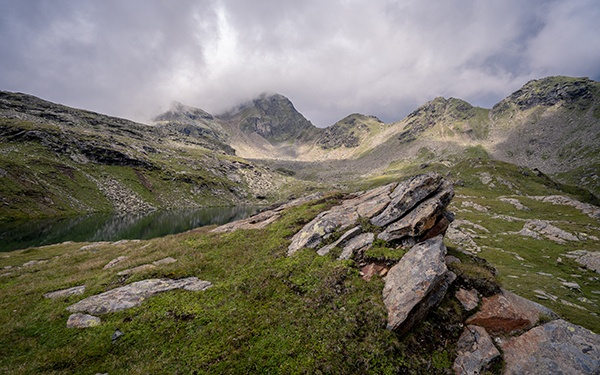
Close to Austria’s border with Italy and with stunning views of the surrounding Dolomite mountains and the Isel and Drau Rivers which run through the town, Lienz has an historical legacy stretching back to Roman times.
Archaeological sites, a stately medieval castle, and a Franciscan monastery are just some of Lienz’s points of interest.
Lined with colourful town houses, the streets are filled with buzzing cafés and boutiques, all of which makes Lienz a most pleasant place indeed.
Jobs in Austria for British Expats
Austria has a strong, stable economy, and there are a number of industries with skills shortages where UK expats can find employment, including nursing, construction, engineering, and tourism and hospitality.
Competition for jobs can be tough however, and Austrians expect high standards.
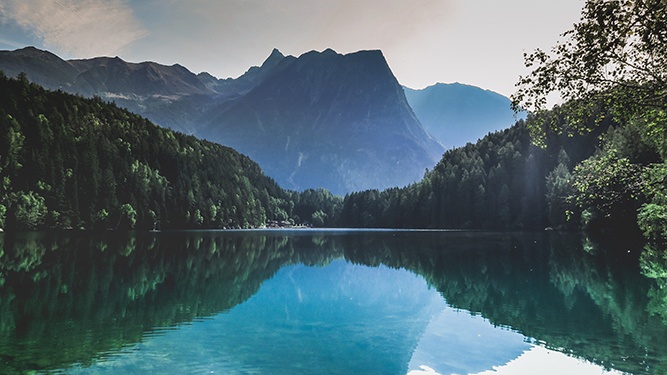
Are you moving to Austria from the UK?


